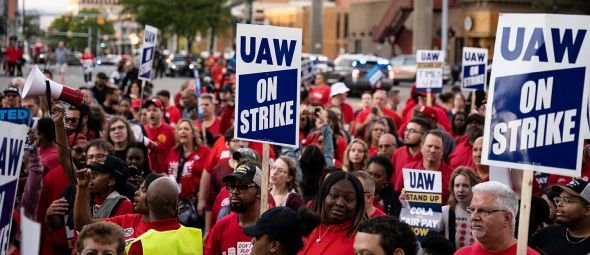Job Quality and Employer Practices: Evidence from B Corporations
A new WorkRise report explores how employer practices related to job quality differ between certified B Corporations and similar firms, revealing insights into worker benefits, firm outcomes, and strategies to improve job quality.
Read full report
A new WorkRise report explores how employer practices related to job quality differ between certified B Corporations and similar firms, revealing insights into worker benefits, firm outcomes, and strategies to improve job quality.
Grantmaking and Partnerships
Led by a cross-sector Leadership Board that is ideologically diverse and representative of often-siloed groups, WorkRise invests in research on policies, programs, and practices that have the potential to accelerate economic security and mobility for low-wage workers. We fund analyses and the creation of data that shed light on labor market barriers, trends, and opportunities. And we engage in strategic partnerships that help advance evidence-based solutions in support of our mission. Learn more about our most recent request for proposals and how you can collaborate with WorkRise.
The Latest
In Depth

Economic context, Care work, Scheduling
Feature
Last updated on October 24, 2024
Segregation in the Low-Wage Workforce
Over the past 50 years, the composition of the low-wage workforce has changed: more than half of low-wage workers are now people of color, up from just 20 percent in 1971. Today, Black, Latino, and women workers are more likely to be segregated into worse-quality and lower-paying jobs.
WorkRise Research
The Latest

Economic context
October 23, 2023
Article
In a Recession, Fewer Liquid Assets Add to Black Financial Instability
Black families are less likely to hold liquid assets than white families and are more vulnerable to economic downturns. Targeted policies can protect these families during the next recession and aid in closing the racial wealth gap.

Worker voice, representation, and power
October 17, 2023
Research Summary
Reducing Household and Economy-Wide Income Inequality through Labor Market Institutions
By analyzing previously unavailable union membership data throughout the 20th century, this study finds that high union participation reduces income inequality at both the household and economy-wide level, with the biggest benefits being felt by nonwhite and less-educated households.

Social determinants of work
October 05, 2023
Article
Lessons from the 2023 Freedom & Justice Conference: By/For/With Our Communities
This reflection of the 2023 Freedom & Justice Conference underscores the importance of recognizing historical oppression, collecting inclusive data, and designing culturally competent initiatives to address the enduring challenges faced by many Indigenous communities. This imperative extends to various marginalized groups and the diverse stakeholders who work to improve their wellbeing.


